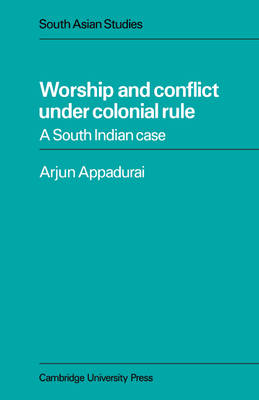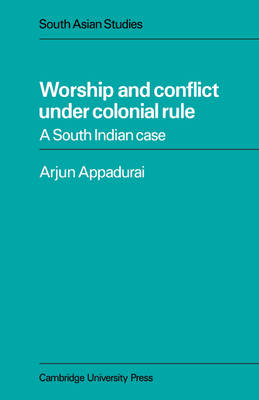
- Afhalen na 1 uur in een winkel met voorraad
- Gratis thuislevering in België vanaf € 30
- Ruim aanbod met 7 miljoen producten
- Afhalen na 1 uur in een winkel met voorraad
- Gratis thuislevering in België vanaf € 30
- Ruim aanbod met 7 miljoen producten
Zoeken
€ 64,95
+ 129 punten
Uitvoering
Omschrijving
Although temples have been important in South Indian society and history, there have been few attempts to study them within an integrated anthropological framework. Professor Appadurai develops such a framework in this ethnohistorical case study, in which he interprets the politics of worship in the Sri Partasarati Svami Temple, a famous ancient Sri Vaisnava shrine in India. The author uses the methods and concepts of both cultural anthropology and social history to construct a model of institutional change in South Asia under colonial rule. Focusing on the problem of authority as a cultural concept and as a managerial reality, Professor Appadurai considers some classic problems of South Asian anthropology: problems of deference, sumptuary symbolism, and religious organization. In addition, he addresses such issues as the nature of conflict under a hybrid colonial legal system, the political implications of sumptuary disputes, and the structure of relations between polity and religion in pre-modern South Asia. These aspects of the study should interest a broad range of scholars.
Specificaties
Betrokkenen
- Auteur(s):
- Uitgeverij:
Inhoud
- Aantal bladzijden:
- 280
- Taal:
- Engels
- Reeks:
- Reeksnummer:
- nr. 27
Eigenschappen
- Productcode (EAN):
- 9780521053587
- Verschijningsdatum:
- 3/12/2007
- Uitvoering:
- Paperback
- Formaat:
- Trade paperback (VS)
- Afmetingen:
- 140 mm x 213 mm
- Gewicht:
- 385 g

Alleen bij Standaard Boekhandel
+ 129 punten op je klantenkaart van Standaard Boekhandel
Beoordelingen
We publiceren alleen reviews die voldoen aan de voorwaarden voor reviews. Bekijk onze voorwaarden voor reviews.








